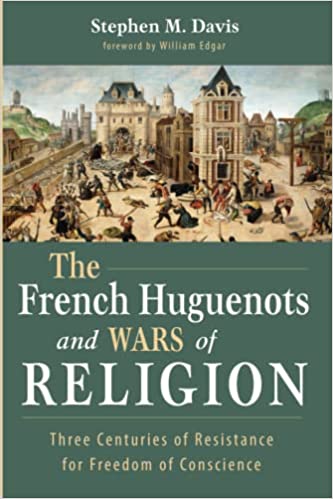A Book Review from Books At a Glance
by Michael A. G. Haykin
Like many Anglophone Evangelicals, I knew next to nothing about the French Huguenots until I began to teach annually at a French Baptist seminary in Québec from the mid-1980s onwards. I was teaching courses on the Reformation and early modern church history. After the sixteenth century, most of my lectures in the courses followed the history of the English Puritans and the revivals of the eighteenth century in the British Isles and America. At some point in the late 1980s, I realized that these French Baptists also had a tremendous heritage not only in the life and witness of such sixteenth-century French Reformers like Guillaume Farel, John Calvin, and Pierre Viret, but also in an entire history that ran from Huguenot figures like Gaspard de Coligny and Pierre Du Moulin to Jean Claude and Marie Durand.
Over the next twenty-five years, as I taught about these French Calvinists and Reformed believers, I realized that I had discovered a marvelous stream of Christian witness, heroism, and sterling integrity. This tradition of the Christian Faith also raised some difficult questions, though, for it encapsulated a tradition of armed resistance to French state persecution from the 1560s through to the early seventeenth century, which eventuated in what are known as the eight Wars of Religion between 1562 and 1598. The political theology crafted by various French Reformed authors in this era would have long-lasting consequences as it influenced the mainstream of Anglophone Reformed thought and became a key part of such events as the American Revolution.
Now, what is amazing about this French Christian tradition is how little known it is by English-speaking Christians. Enter this excellent primer by Stephen Davis, who, in a compass of about 150 pages, tells the story of French Protestantism between the advent of the Reformation and the French Revolution. It is a history replete with biblical pioneers like the court preacher Léfèvre d’Étaples (p.28–31), supremely tragic events, like the St Bartholomew’s Day Massacre (p.59–61), remarkably heroic individuals such as Antoine Court and Marie Durand (p.99–103), and the stirring watch-cry engraved on the wall of the infamous Tower of Constance—Résistez!
It is a complex story that Davis tells with deftness and evangelical vim. An extensive chronology (p.123–127) helps the novice to this history maintain his or her bearings. Davis does not hide his convictions and his admiration for this tradition, which played such a crucial role in the fight for religious freedom in the West, but his evaluation of the Huguenot community is even-handed. The “Conclusion” (p.115–121) looks at how the contemporary world with its concern for freedom and its problem of refugees (the eventual fate of many of the Huguenots after 1685 [p.103–105]) has echoes in Huguenot history. Hence, our need to study this rich stream of Christian life.
If there is one lacuna, I felt that Davis could have added another chapter that looked at the revitalization of large sections of this community in le Réveil in the post-Napoleonic world and in which figures like César Malan and Adolphe Monod played such a vital role. This is but a minor quibble, though, with regard to an excellent primer about a remarkable group of Christians.
Michael A.G. Haykin
The Southern Baptist Theological Seminary
Buy the books

THE FRENCH HUGUENOTS AND WARS OF RELIGION: THREE CENTURIES OF RESISTANCE FOR FREEDOM OF CONSCIENCE, by Stephen M. Davis